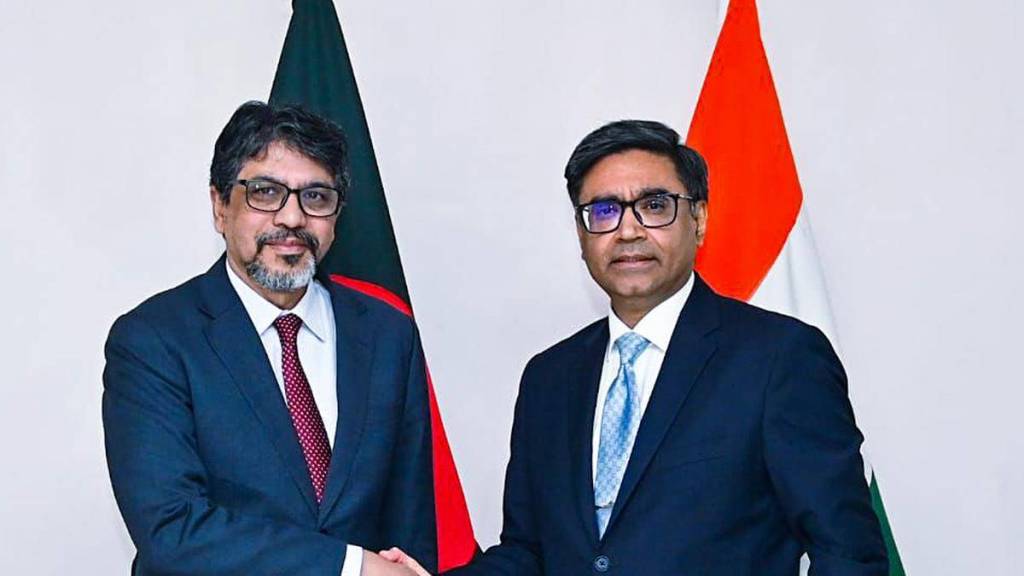In his visit to Dhaka on Monday (Dec 9, 2024), India’s Foreign Secretary Vikram Misri engaged in discussions with his Bangladeshi counterpart Mohammad Jashim Uddin on a range of bilateral issues, with a particular focus on the safety of religious minorities and the future of cooperation between the two nations. Misri’s visit, which follows a period of political upheaval in Bangladesh, is the first high-level engagement between the two countries since the ousting of Prime Minister Sheikh Hasina in August 2024.
A Direct Focus on Minority Safety
One of the central issues discussed during Misri’s visit was the safety and security of religious minorities in Bangladesh, particularly Hindus, who have faced rising attacks in recent months. Misri conveyed India’s concerns over the incidents of violence against minorities, including attacks on cultural and religious properties, and the arrest of Hindu spiritual leader Chinmoy Krishna Das.
The arrest of Krishna Das in October 2024, after leading protests demanding better security for Hindus, has sparked a wave of protests across Bangladesh and India. Misri made it clear that this development had caught India’s attention, with growing concerns about the treatment of religious communities in Bangladesh. “We also discussed recent developments and I conveyed our concerns, including those related to the safety and welfare of minorities,” Misri said after the meeting.
His comments reflect India’s ongoing apprehension about the state of religious freedom in Bangladesh, particularly since the rise in extremist violence. Misri expressed unease that while perpetrators of violence against minorities continue to evade justice, figures like Krishna Das, who advocate peacefully for the rights of their communities, face legal consequences. “It is unfortunate that while the perpetrators of these incidents remain at large, charges should be pressed against a religious leader presenting legitimate demands through peaceful gatherings,” Misri stated, underscoring India’s concerns.
Strengthening Bilateral Ties Amid Political Transition
The visit also provided an opportunity to address the broader context of India-Bangladesh relations following the political changes in Bangladesh. In August 2024, after the removal of Prime Minister Sheikh Hasina, the interim government, led by Nobel laureate Muhammad Yunus, took power. Despite the political shift, India reaffirmed its intention to continue its collaboration with Bangladesh.
Misri made it clear that India remains committed to fostering a positive, constructive relationship with Bangladesh, regardless of the political changes. “I have underlined today India’s desire to work closely with the Interim Government of Bangladesh authorities,” Misri said, stressing that India is ready to collaborate with the new administration to address common challenges. India’s engagement with Bangladesh has always focused on shared benefits, and Misri’s visit underscored this ongoing priority.
India and Bangladesh share strong people-to-people ties, which have been the backbone of their relationship. These ties have translated into concrete cooperation across various sectors, including trade, energy, connectivity, and cultural exchanges. Misri pointed to the numerous development projects that India has been involved in across Bangladesh, noting that these collaborations serve the mutual benefit of both nations. “We have always seen in the past, and we continue to see in the future, this relationship as a people-centric and people-oriented relationship,” he said, reinforcing India’s commitment to projects that improve the lives of ordinary people in both countries.
Addressing Diplomatic Tensions
Misri’s visit also came at a time of heightened diplomatic tensions, especially following protests in India against the arrest of Krishna Das and the alleged attacks on Hindus in Bangladesh. In India, there were protests that included incidents of violence, such as attacks on Bangladesh’s diplomatic missions in states like Tripura and West Bengal. Misri acknowledged the situation, noting that both sides had agreed to address these issues in a constructive manner.
“There were discussions on the regrettable incidents of attacks on cultural, religious, and diplomatic properties,” Misri stated, referring to the protests that had taken place in India. Despite the tensions, both sides agreed that such incidents should not define their relationship and that diplomatic channels must remain open. “We had the opportunity to take stock of our relations,” Misri added, emphasizing the importance of frank and candid exchanges to maintain a healthy dialogue.
In this context, Misri also highlighted the importance of maintaining stability and calm, both within Bangladesh and between the two countries. He expressed hope that the issues raised during the discussions would be addressed with the seriousness they deserve, and that the two nations would move forward in a positive direction. “A constructive approach on all these issues by the Bangladesh authorities is important, and we look forward to moving the relationship forward in a positive, forward-looking direction,” Misri concluded.
Shared Future Prospects
“We are focused on the future,” he said, underscoring the need to keep building on existing ties, particularly in the areas of trade, energy, and regional cooperation. India’s cooperation with Bangladesh in development initiatives and connectivity projects remains a priority, as both countries recognize the potential for economic growth through closer collaboration.


